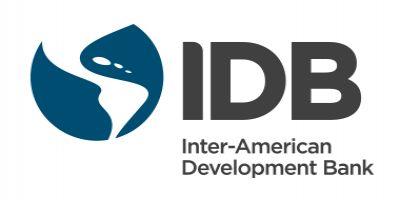US Strategist and Senior Adviser to Trump Elected President of the Inter-American Development Bank (IDB)

The appointment of Mauricio Claver Carone (an American citizen) as president of the Inter-American Development Bank is generating many controversies across Latin America. For the first time in its more than 60 years of existence, the IDB will be chaired by an American citizen. This fact causes great discontent particularly in Latin countries, which are the most fragile economies of the continent.
Mauricio Claver Carone is Trump’s senior advisor for Latin America. More than that, Carone is the real mind behind US’ aggressive foreign policy on the American continent in the last years. A lawyer and specialist in Latin America, Carone has been Trump’s major strategist in drafting coercive policies against Cuba and Venezuela. Indeed, what scares the Latin countries is not only the fact that an American citizen was chosen to lead the Bank, but the fact that Carone was the choice.
It should be clarified that this designation was not an ideological confrontation in a democratic institution. The IDB cannot even be considered a democratic institution, since the vote depends on the bank’s economic power, now mostly in the hands of the United States. Washington has 30% of all voting power in the bank’s decisions. Interestingly, in second place is precisely Brazil (with 11%), a country that is currently governed by a political wing absolutely aligned with the US foreign policy. Therefore, the “election” of the bank’s president can be considered a purely figurative act to serve American interests.
Four countries were united in their resistance to the appointment of Carone. The governments of Argentina, Chile, Costa Rica and Mexico have officially supported the postponement of the elections but have not achieved their objective. Despite resistance, Mauricio Carone was designated president of the IDB during an electronic meeting of the Bank’s Board of Governors and will take the office on October 1, 2020, for a period of five years, and will be responsible for the operations of the IDB Group.
The IDB has significantly increased its financial presence over the years in Latin America and the Caribbean, but it is also important to note that the IDB’s loan policies have always obeyed Washington, acting in accordance with the American political projects. In this way, the IDB will continue to act as an arm of the American diplomacy and will serve US interests instead of financing regional development projects, as it should do, according to its original objectives. In this way, loan policies will be implemented in accordance with political and ideological views, economic projects and diplomatic ties with governments aligned with Washington.
Currently, the IDB’s financial products include loans, grants, guarantees and investments. The IDB’s main asset is undoubtedly its loan portfolio. The American government is perfectly aware of the moment that the world is going through – when multilateral credit institutions will play an especially important role in times of illiquidity. In this sense, Carone’s presidency comes at a particularly strategic moment.
However, the case must be analyzed considering a recent initiative by the American government to increase its economic presence in Latin America. It is called “Growth in the Americas Initiative” and is a major American project to expand its economic control over Latin America and the Caribbean, obtaining a reformation of the Latin American states’ financial and political dependence on Washington. In an official statement, the American government defines the Initiative as follows: “The U.S. government will officially launch the expanded Growth in the Americas (América Crece) initiative on December 17 in Washington, D.C. Growth in the Americas is a whole-of-government initiative that will foster private sector infrastructure investment in Latin America and the Caribbean. Expanded bilateral cooperation between the United States and countries in the region will help reduce excessive regulatory, legal, procurement, and market barriers to investment. Growth in the Americas will facilitate job creation and accelerate economic growth in the Americas by promoting the private sector as the primary engine of growth to develop critical infrastructure of all types – energy, airports, ports, roads, telecom, and digital networks, among others.” In fact, by gaining control over the IDB, the United States achieved a major step in the Initiative’s triumph, even before its official launch.
In a global scenario of economic crisis and instability due to the coronavirus pandemic and with the intensification of the trade war between the US and China, the American strategy seems to be focused on a progressive confirmation of its regional power. No longer able to guarantee full control over the global financial market, Washington now concentrates on the American continent and on obtaining a political and economic reformation of the region, making Latin States increasingly financially dependent and politically aligned with the interests of the White House. Considering Carone’s election and this global context, we can foresee a period of great difficulties for Latin States.
*
Note to readers: please click the share buttons above or below. Forward this article to your email lists. Crosspost on your blog site, internet forums. etc.
This article was originally published on InfoBrics.
Lucas Leiroz is a research fellow in international law at the Federal University of Rio de Janeiro.
Featured image is from InfoBrics

